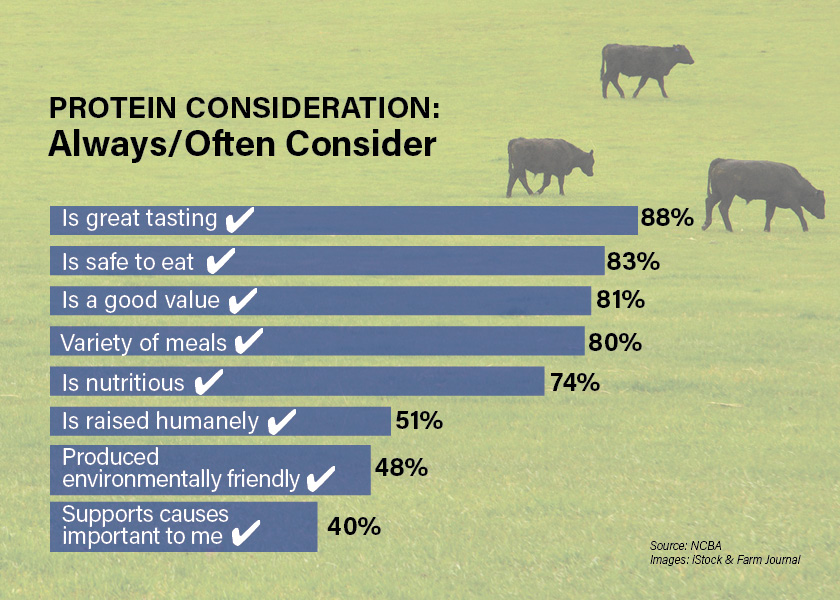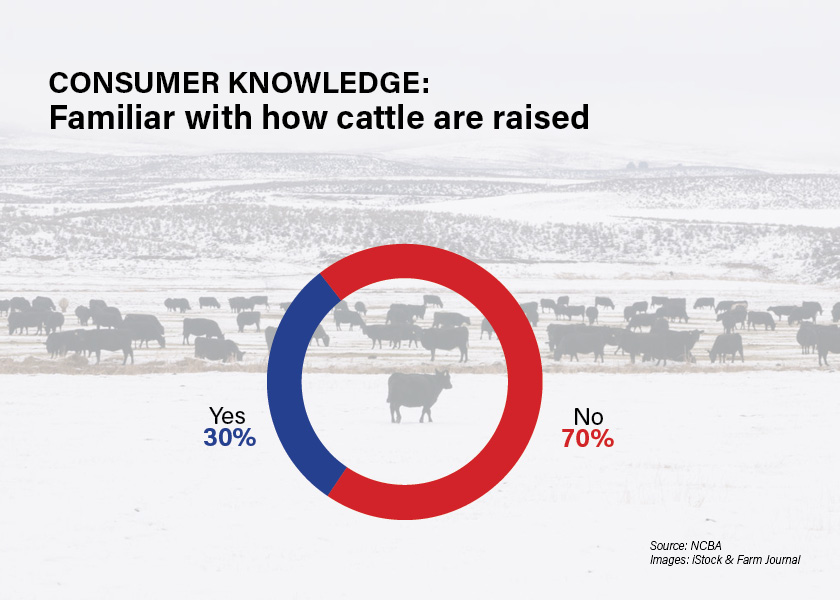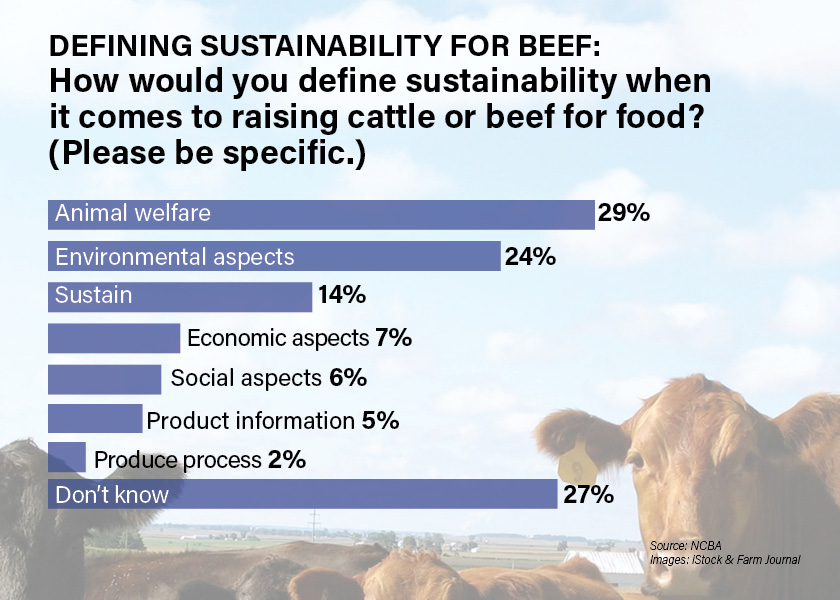NCBA announces Climate Neutrality Goal for Cattle Industry by 2040
AgDay 08/13/21 - NCBA Sustainability Goals
On Thursday, National Cattlemen's Beef Association announced a plan to address beef sustainability and solidify their commitment to environmental, economic and social sustainability for the U.S. Cattle Industry.
The announcement came during the NCBA general session, “Sustainability—Opportunity, or a Bunch of Bull?”
Marty Smith, 2021 NCBA Past President, a rancher and an attorney from Wacahoota, Fla., announced goals focused on four critical areas:
- Demonstrate climate neutrality of U.S. cattle production by 2040.
- Create and enhance opportunities that result in a quantifiable increase in producer profitability and economic sustainability by 2025.
- Enhance trust in cattle producers as responsible stewards of their animals and resources by expanding educational opportunities in animal care and handling programs to further improve animal well-being.
- Continuously improve our industry's workforce safety and well-being.
The framework for the program was developed by the Sustainability Goals Task Force, a committee made up of cattle producers nominated from 17 states. Smith says the committee was formed of aggressive and opinionated cattle producers who pushed hard to create a position that demonstrated leadership for the industry.
“We got big, bold and audacious,” Smith says. “We decided if we're gonna do this, let's do it and let's hit it hard.”
Ashley McDonald, senior director of sustainability for NCBA, spoke about the initiative with AgDay’s Clinton Griffiths.
“One thing that's really important is it's not just about a climate goal, an environmental goal; it's not even an economic goal. It's about all of them, because sustainability truly is a balancing act between everything that we do,” McDonald says. “And we hope to convey that the decisions that producers make on their farms and ranches, every day, are extremely complex.”
Social Sustainability: What Consumers (Don’t) Know
Consumers are pushing hard for sustainability in their food, but NCBA research and focus groups have demonstrated most consumers struggle to define what sustainability means. And oftentimes when they can define sustainability, the definition focuses on topics like renewable energy, paper straws or reusable water bottles instead of food production. Education is needed to close the gap, and that’s where Smith says the cattle industry can take a stand.
“It’s time for NCBA to play some offense and quit being kicked around by biased, unscientific data in the media,” he says.
Shawn Darcy, Senior Director of Market Research at National Cattlemen's Beef Association, shared some data insights to uncover gaps in consumers’ knowledge about how their food is produced.
First off, it’s important to recognize while issues of animal welfare are growing in importance to consumers, their top considerations when they make decisions about proteins are still issues like taste, safety, value and nutrition.

And many consumers are not familiar with cattle production. The good news: 62% say they find cattle producers very credible.

These gaps in consumers’ knowledge and their high level of trust with livestock producers means they’re poised to be educated on sustainability. The chart below demonstrates there’s room for cattle producers to take control of the storyline to demonstrate their stewardship and sustainability efforts.

Environmental Sustainability: Many Paths to Climate Neutrality in 2040
The three pillars of NCBA’s announcement—environmental, economic and social sustainability—start with the foundation that cattle production must be financially sustainable for producers. And when producers can achieve economic sustainability, it feeds their environmental and social sustainability goals, says Dr. Jason Sawyer, Associate Professor and Research Scientist with King Ranch Institute for Ranch Management with Texas A&M University—Kingsville. Sawyer spoke about the intricate relationship between the three pillars.
“As we enhance the economic viability, you’re also driving improvement in the other two areas,” he says.
Sawyer outlined multiple plans with moderate and aggressive goals, emphasizing there are at least three paths with one aggressive and a couple moderate efforts that will lead to climate neutrality. These paths could include efforts to sequester carbon and find paths to offset global warming.
Economic Sustainability: Demand for Beef Continues to Climb
To close the session, NCBA CEO Colin Woodall lead a panel discussion with David Norton, President of Sysco’s Specialty Meat Service, and Kristine Richmond, Head of Sustainability & ESG, with Darden, a company that owns restaurants such as Capital Grille and Longhorn Steakhouse.
Norton and Richmond expressed appreciation for livestock producers and the essential role they play feeding the world.
“The demand for beef continues to walk through our front doors every day,” Richmond says, explaining they restaurant sales this year were 14% above pre-pandemic levels.
Norton says while he appreciates how producers have come to the table to demonstrate stewardship and sustainability, it’s now time for corporations to also step up.
“We’ve got to make sure we’re part of the solution,” Norton says. “We are with you, and we’re two large corporations—we’re all in this together.”







